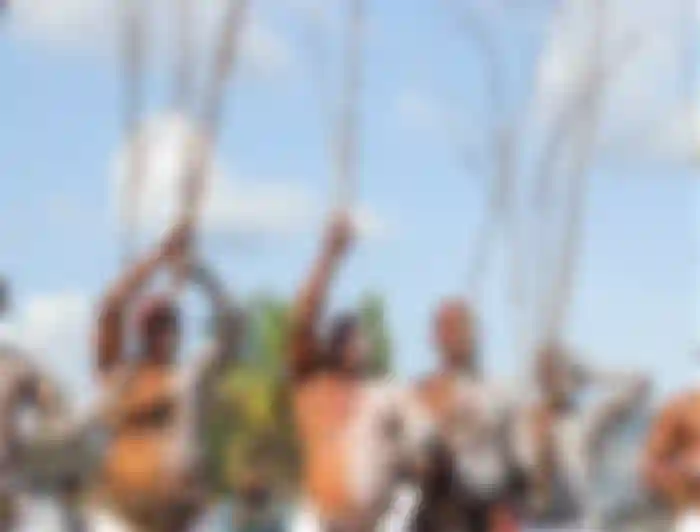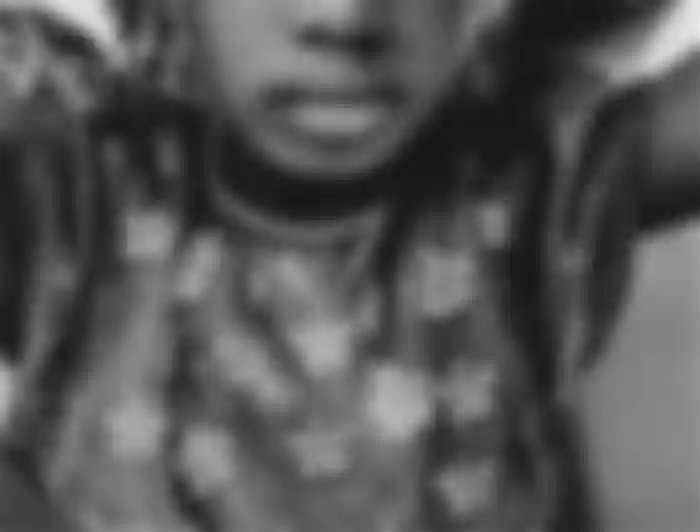The Yoruba Culture
The three major tribes we have in Nigeria are: Yoruba, Hausa and Igbo. That's why we have the common word, WaZoBia which means 'come'. Wa means come in the Yoruba language, zo means come in the Hausa language while Bia means come in the Igbo language. They all mean the same thing.
I will be focusing more on the Yoruba language and tell you my knowledge of this beautiful culture.

Greeting
The Yorubas have a word of greeting for everything you can think of. In the morning, the English will say good morning while the Yorubas will greet you by saying 'Ekáarò'which also mean good morning. In the afternoon, we say, 'Ekasan/eku osan'. Likewise in the evening, 'Eku irole' should be on your lips and at night, we say, 'Ekaale/eku ale' which means good night. Let's say you meet a person or group of people sitting down and you are about to have your seat, you are meant to greet and you can say a quick one like 'Eku ijoko' which literally means happy sitting or well-done for sitting down. Even when you are standing, there is a greeting for that too. We also greet people as they work in their different field. We greet hairdressers by saying 'Eku ewa' which means good job on creating a beauty.
While greeting, let's say your elders, parents or anyone older than you, you are meant to kneel or postrate as a sign of respect. Males prostrate while females kneel. You do this whenever you want to greet. It is required of you. A true Yoruba child will kneel or prostrate before his/her parents when greeting. You don't wake up and greet your parents hi dad or hello mom. If you do this, you might end up starting your day with a slap or a strong word to help straighten your senses.
Also, as a way of showing respect, the younger one must not call the older one plainly by his/her name even if the distance between the both of you is not much let's say, two years. And it does not matter if you are related by blood to the person in concern. Putting of brother or aunty is necessary. A child that does otherwise is considered a spoilt child.
Well, the truth is, we carry respect on our head. 😁😅
Fashion (Oge Sise)
The Yorubas are also known for their incredible fashion sense which is termed 'oge sise'. They like to look beautiful and well adorned. To achieve this, they go all out to see it done.
Tribal mark: This is the mark given to children at childbirth. As weird or wicked as this seems, yet, it is considered a form of fashion and beautification. It is also meant to let you know where in particular a person comes from. The tribal mark on Oyo people is different from that of the Abeokutas.
Waist bead: It is called 'Ìlèkè' in Yoruba language. This is not unfamiliar to us. Waist beads as the name implies, are beads strung into a rope to be put on the waist. The beads come in different sizes and shapes. There is no limit to the number of waist beads one can wear. There is even an adage that says one's child's waist cannot be empty and one will go and adorn someone else's child with waist bead. This shows that waist beads are highly valued here.
Hairdo: We call it irun didi- that is, making of hair. For guys, barbing skin and letting it shine is the general hairstyle while for girls, plaiting it is what is applicable here. But plaiting of hair is mostly done with one's natural hair. We have styles like 'Suku', 'Koroba', 'Ipako elede', 'Patewo', 'adiseyin (all back)'. Ipako elede is plaited from the back to the front while adisehin is plaited from the front to the back. The advantages of this making this hairstyles is that it brings out the true beauty of a lady and it is also cheap compared to other modern styles.

Clothes: No sane man would love to walk naked, this means wearing of clothes that will cover sensitive parts of one's body as well as beautify one is very important, especially in the Yoruba culture. It is called 'Aso wíwò'. Just like wearing of suits, shirts and ties is to the English, so is wearing of Buba(big top) and tying of wrapper (ìró) is to the Yoruba. We have Tie and dyed clothes, Ankara, Ofi, lace and other good quality-material clothes.

Ceremonies
Ceremonies are bound to happen. They are things of joy be it wedding, naming or burial ceremony. But they are not just celebrated or marked in Yoruba land. Certain things have to be done or provided to see that it ends well.
Marriage
A marriage is the coming together of two people–a male and a female—to become one for the purpose of co-habiting and reproducing. In Yoruba land, when a lady says yes to a man to marry him, the matchmaker steps back as his work has already been fulfilled. Then, the parents of both families come together, get introduced and plan towards the wedding. The bride's family will also give to the groom's family the dowry list which contains list of the things needed for the ceremony, including the bride price.

On the engagement day, certain goods like yam, palm oil, rice, honey, fish, water, alligator pepper, mat, kolanut and bitter kola are brought for the bride's family. They are used to pray for the couples and then distributed for the major people in the familu like the bride's parents, grandparents, the eldest in the family, the housewives and also the children in the house.
These goods have a great significance and are taken one after the other and used to pray for the couples.
Honey: It is called Oyin in Yoruba. They use honey to pray by saying the lives and their union shall not just be sweet but also enjoy sweetness and no bitterness shall be found with them.
Water:Water is also used to pray. It is called 'omi' in Yoruba. It means their enemies shall be few or of no number as nobody makes enemy with water.
Alligator pepper :It is called 'ataare' in Yoruba. It is known for having a lot of seeds in it. So, it is used to pray that the couples will give birth to many children. As uncountable as the seeds in it are, so shall their children be—many. In all, it means they shall be fertile.
Bitter kola: It is called 'orogbo' here. They use this to pray for long life for the child.
Catfish: We call it 'Eja abori' here. They pray for the couples using this fish that just how it fights triumphantly in the water with its head, so shall they scale through life without stress.
Now, the holy books—the Bible and the Qur'an have been added to the prayer list.
Naming Ceremony
This event holds to christen and also welcome the coming of a baby into the world and the family it belongs. In Yoruba land, boys are christened after eight days while girls are named after seven days. Items like water, honey, catfish, bitter kola, kolanut, and sand are used to pray for the newborn baby.
This is just a few of the way of life of the Yorubas. In true Yoruba language, I would like to say 'Odaaro' to everyone out there. It means till tomorrow in case you are wondering.
I hope you enjoyed reading? How is your own culture like and what's so peculiar about it? Please, do let me know in the comment section.
Thanks for reading. 🤩




Omo Yoruba! I remember one certain time that I was learning Yoruba language, I was always grabbing everything untill i and the Yoruba fellows separated to different states. Nice culture